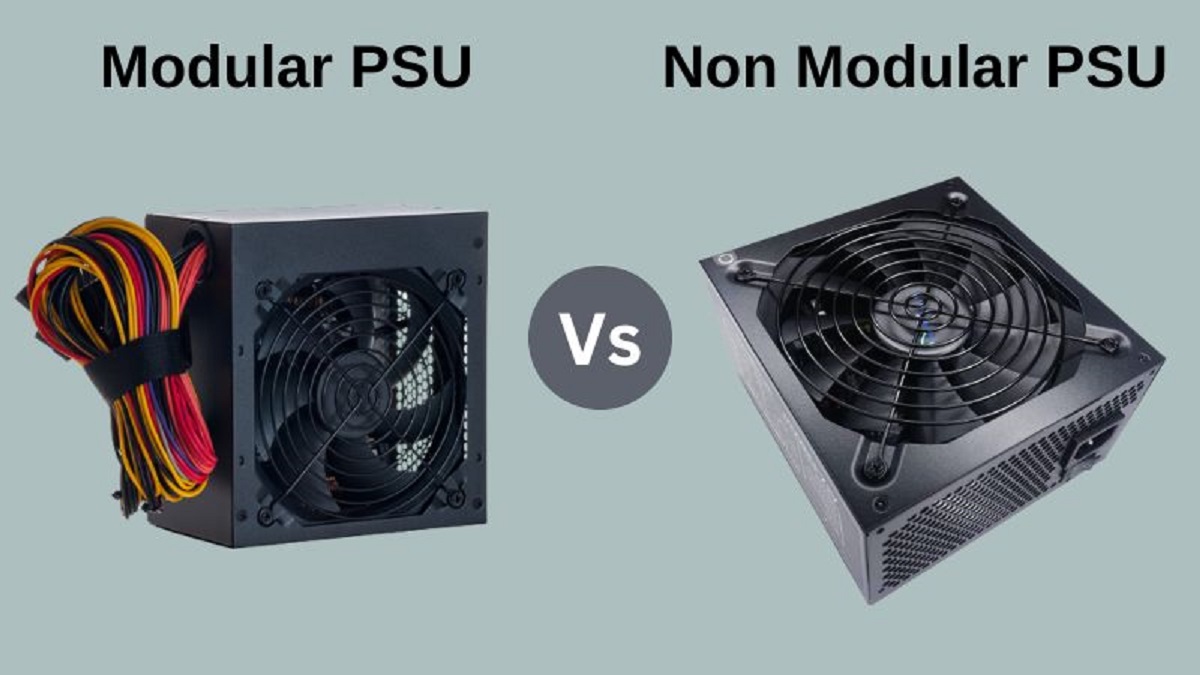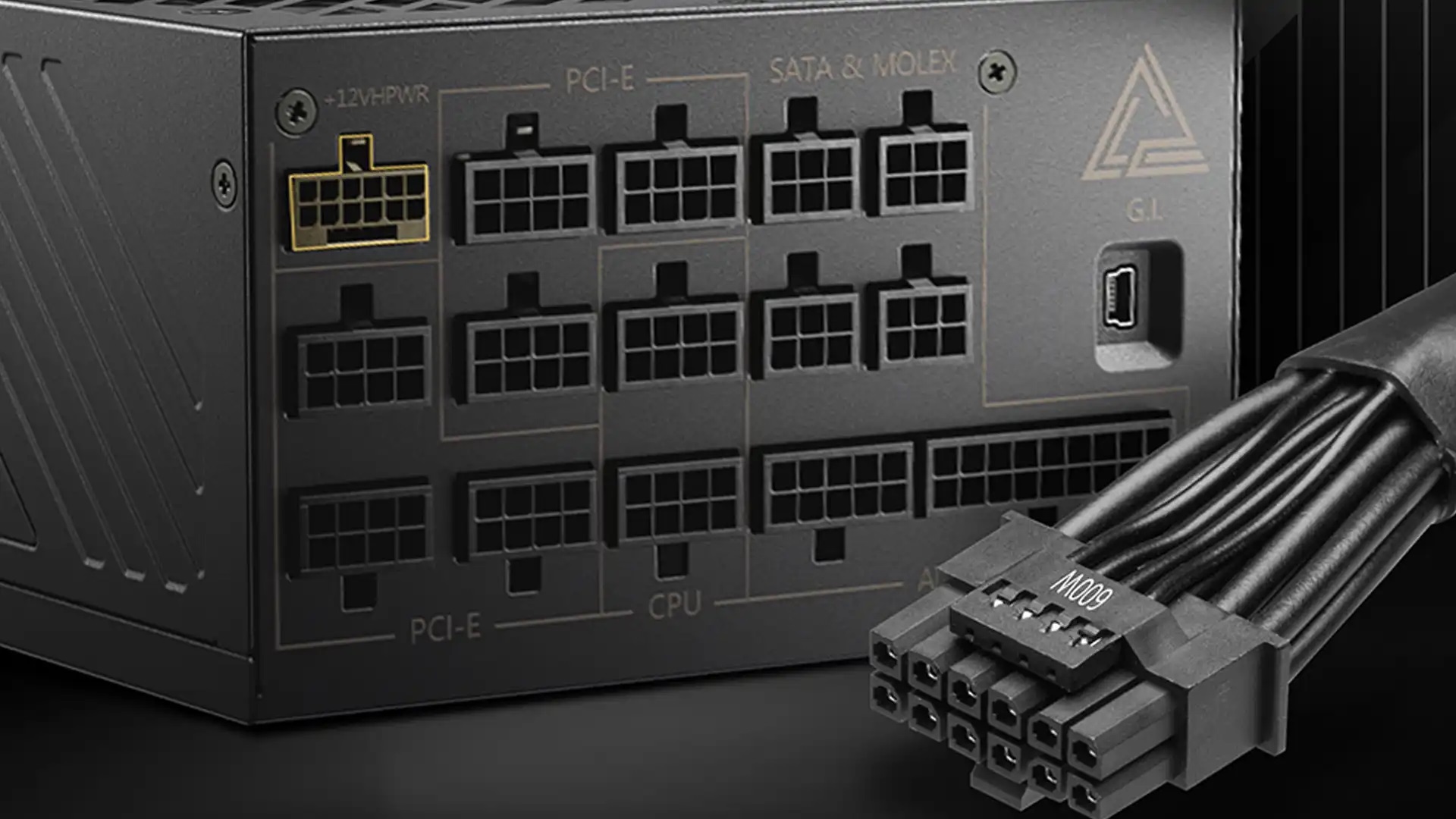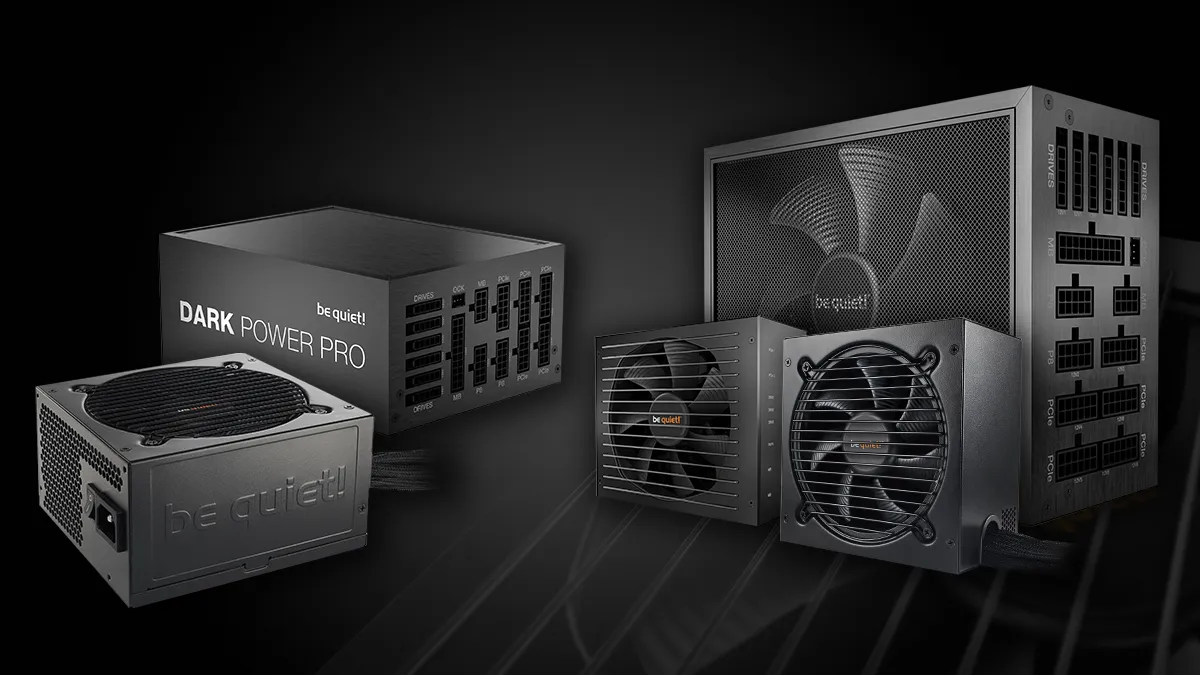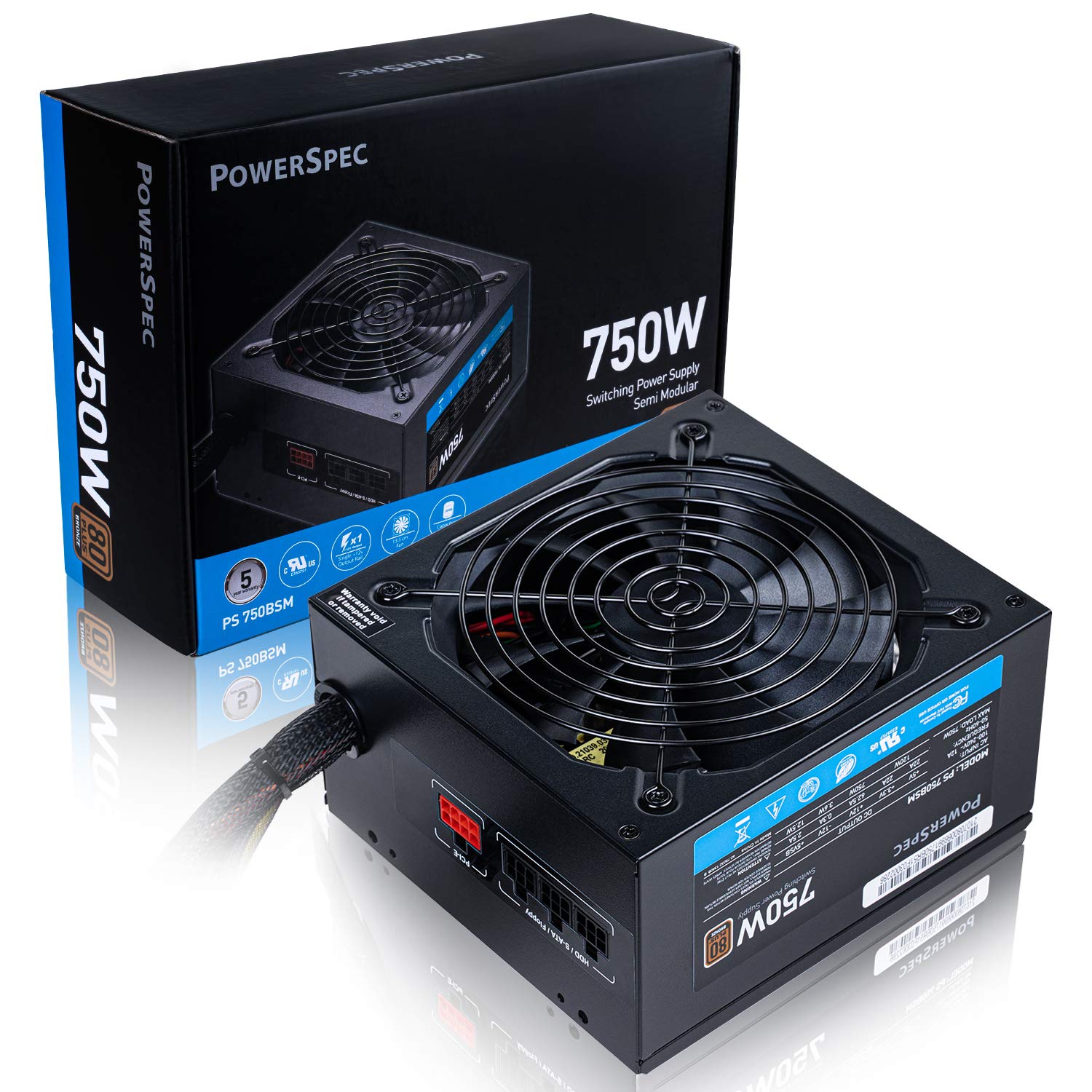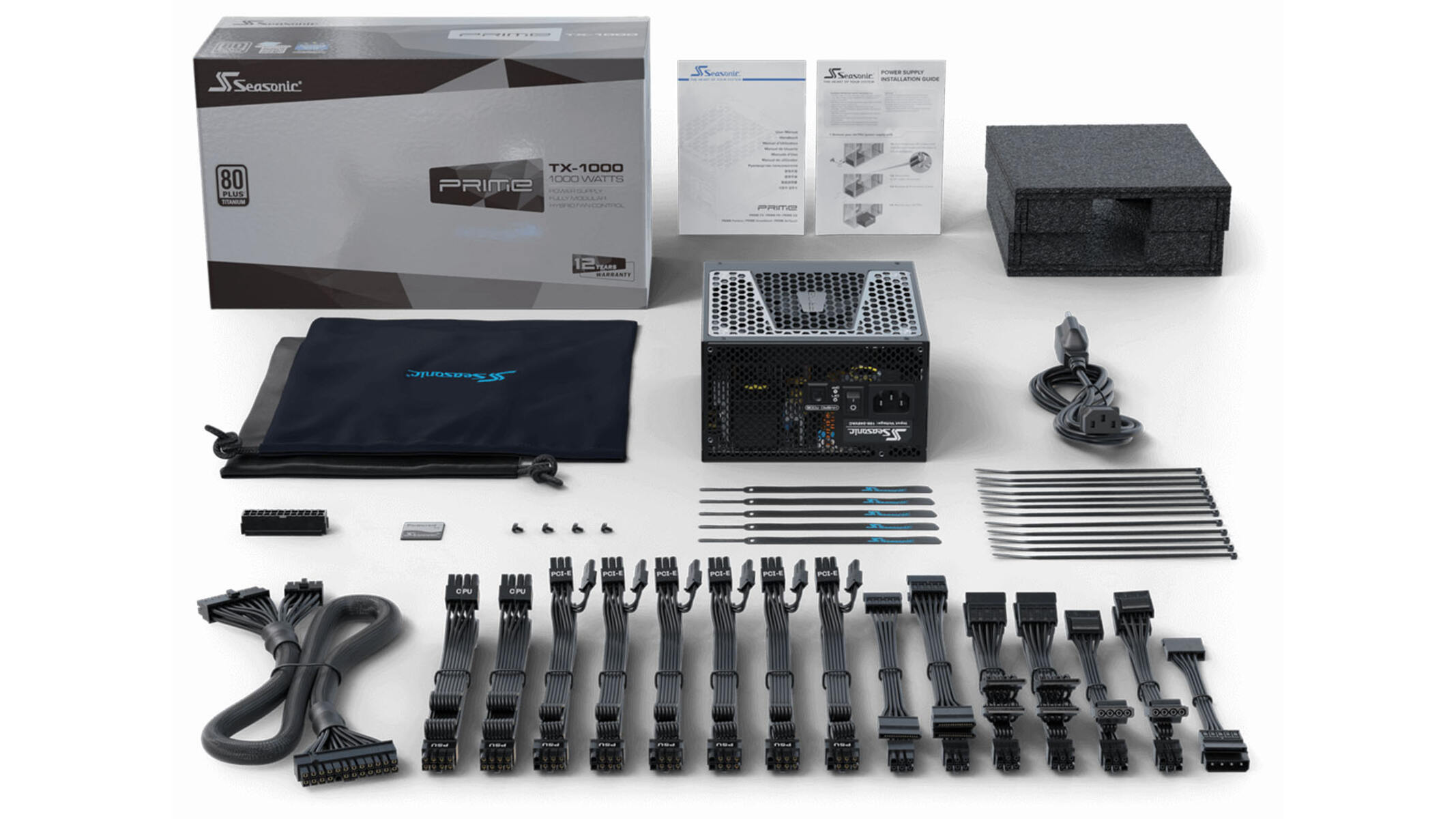Introduction
A Power Supply Unit (PSU) is an essential component of any computer system, providing the necessary power for all its components to function correctly. Without a reliable PSU, the computer’s performance can be hindered, and hardware failures may occur. As technology advances, the demand for more powerful and energy-efficient PSUs has increased.
One significant advancement in PSU design is the introduction of modularity. A modular PSU allows the user to customize the power connections based on their specific needs, providing greater flexibility and reducing cable clutter inside the computer case. But what exactly does modularity mean in the context of PSUs, and why is it important?
In this article, we will explore the concept of modularity in PSUs, the different types of modular connectors available, and the benefits and drawbacks of using a modular PSU. We will also provide valuable insights on how to choose the right modular PSU for your computer system.
What is a PSU?
A Power Supply Unit (PSU) is a device that converts the alternating current (AC) from your wall outlet into the direct current (DC) required by your computer’s components. It acts as the heart of your computer’s power system, providing the necessary electrical energy for the motherboard, graphics card, storage drives, and other hardware to operate.
A PSU typically consists of various components, including transformers, capacitors, and voltage regulators, all working together to ensure a steady and reliable supply of power. PSUs come in different wattages to accommodate the power requirements of different computer systems, ranging from low-powered office PCs to high-performance gaming rigs.
PSUs are rated in terms of their efficiency, which refers to the percentage of power drawn from the wall outlet that is effectively used to power the computer. Higher efficiency ratings mean less wasted energy and lower electricity bills. Common PSU efficiency ratings include 80 Plus, 80 Plus Bronze, 80 Plus Silver, 80 Plus Gold, and 80 Plus Platinum.
PSUs also have various connectors to supply power to different components inside the computer. These connectors include 24-pin ATX, 4+4-pin CPU, SATA, PCIe, and Molex. The selection and availability of these connectors depend on the PSU model and its wattage.
Overall, a PSU is a critical component in any computer system, responsible for providing stable and efficient power to ensure optimal performance and longevity of your hardware.
Why is modularity important in a PSU?
Modularity in a PSU refers to the ability to detach and connect the power cables based on your specific needs. Traditional non-modular PSUs come with a fixed set of cables, which means you have to deal with excess cables even if you don’t need them. This can lead to cable clutter, obstructed airflow, and difficulty in cable management.
Modular PSUs, on the other hand, address these issues by allowing you to connect only the necessary cables. This means you can have a cleaner and more organized computer build, with only the required cables connected and the rest safely stored away.
One of the primary advantages of modularity is improved airflow. With fewer cables cluttering the inside of your computer case, air can flow more freely, keeping your components cooler. This can result in better overall system stability and performance, particularly for systems that generate a lot of heat, such as high-end gaming PCs or workstations.
Another significant benefit of modular PSUs is easier cable management. By utilizing only the necessary cables, you can route and organize them more efficiently. This not only improves the aesthetics of your build but also makes future upgrades or maintenance tasks more straightforward.
Modularity also allows for easier customization. Different computer builds have different power requirements, and having the flexibility to choose the exact cables you need ensures compatibility and reduces the risk of incompatibility or powering the wrong components. This can be particularly beneficial for enthusiasts who enjoy customizing their systems or for those who frequently upgrade their hardware.
Additionally, modular PSUs can offer cost savings. Traditional non-modular PSUs often come with excess cables that are not used, which essentially means you’re paying for something you don’t need. With a modular PSU, you only pay for the cables you require, making it a more cost-effective option in the long run.
In summary, modularity in a PSU brings numerous advantages, including improved airflow, easier cable management, customization options, and potential cost savings. By allowing you to tailor the power connections to your specific needs, modular PSUs enhance the overall performance, aesthetics, and functionality of your computer system.
Understanding modular PSU
A modular PSU is a power supply unit that allows users to detach and connect power cables as needed. It differs from non-modular PSUs, which come with a fixed set of cables that are permanently attached to the unit.
In a modular PSU, the main unit contains the necessary circuitry and components to convert and regulate the power supply. However, instead of having all the cables permanently attached, the PSU features modular connectors. These connectors allow users to connect only the cables that are necessary for the specific components in their computer system.
Modular PSUs typically come with a variety of modular cables that can be connected to the appropriate ports on the PSU unit. These cables include those required for the motherboard (usually a 24-pin ATX connector), CPU (typically a 4+4-pin connector), graphics card (PCIe connectors), and other peripherals like storage drives (SATA connectors) and fans (Molex connectors).
Understanding the different types of modular connectors is crucial when building a system with a modular PSU. Each connector is designed to fit a specific component and deliver the appropriate power required. It’s essential to consult the PSU’s documentation to ensure proper compatibility and installation.
Another aspect to consider with modular PSUs is the length and number of cables provided. It’s essential to choose a modular PSU that comes with an adequate number of cables to power all the components in your system. Additionally, the length of the cables should be long enough to reach the components without causing strain or requiring additional cable extensions.
When installing a modular PSU, it’s important to plan the cable management and routing carefully. Since you have the flexibility to choose which cables to use, you can organize them in a neat and efficient manner. Proper cable management not only makes the system look tidy but also improves airflow and reduces the risk of cable interference with component operation.
Overall, understanding how a modular PSU works and the different components and cables involved is crucial for a successful and efficient system build. By harnessing the advantages of modularity, you can customize your power connections, improve cable management, and optimize the performance and aesthetics of your computer system.
Types of modular PSU connectors
Modular PSUs come with a variety of connectors that allow users to connect power cables to their computer components. Each connector serves a specific purpose and is designed to provide the necessary power for a particular component. Understanding the different types of modular PSU connectors is essential when building a system with a modular PSU.
1. 24-pin ATX connector: This connector is designed to provide power to the motherboard and is a standard requirement for any computer system. It typically consists of a 20-pin main connector and a 4-pin secondary connector that can be combined to create a 24-pin connection.
2. CPU power connector: This connector, usually a 4+4-pin configuration, provides power to the CPU. It is essential for powering the processor and ensuring stable operation.
3. PCIe connectors: These connectors are used to supply power to the graphics card. The number and type of PCIe connectors required depend on the GPU’s power requirements. Common configurations include 6-pin, 8-pin, or 6+2-pin connectors.
4. SATA connectors: These connectors are used to power SATA storage drives such as hard drives and solid-state drives (SSDs). They have a small, flat design and are widely used in modern computer systems.
5. Molex connectors: These connectors are larger, rectangular connectors that were commonly used in older computer systems. They are primarily used to power older peripherals such as fans, disk drives, and certain accessories.
It’s important to note that the number and configuration of modular connectors can vary depending on the specific modular PSU model and wattage. Some PSUs may include additional connectors, such as floppy connectors or peripheral connectors, to accommodate specific hardware requirements.
When choosing a modular PSU, it’s crucial to ensure that it provides the necessary connectors to power all your components. Insufficient connectors can prevent you from properly connecting and powering certain hardware, leading to compatibility issues and system malfunctions. Conversely, having extra connectors can provide future expandability options and flexibility for upgrading your system.
By understanding the different types of modular PSU connectors and their purposes, you can ensure proper compatibility and efficient power delivery to all your computer components.
Benefits of modular PSUs
Modular power supply units (PSUs) offer several advantages over traditional non-modular PSUs. These benefits make them a popular choice among computer enthusiasts and builders who value flexibility, cable management, and overall system aesthetics.
1. Customizable Power Connections: One of the significant benefits of modular PSUs is the ability to customize power connections. Users can connect only the necessary cables for their specific components, reducing cable clutter and improving airflow within the computer case. This customization ensures a cleaner and more organized build.
2. Improved Airflow: With fewer cables obstructing the airflow within the computer case, modular PSUs contribute to better overall system cooling. Proper airflow helps to keep the components at optimal temperatures, resulting in improved system stability and performance, especially under heavy loads or during intense gaming sessions.
3. Easy Cable Management: Modular PSUs simplify cable management, as users have the freedom to choose only the required cables. This allows for more efficient routing and organization of cables, reducing the chances of tangled or loose cables. Easier cable management not only enhances aesthetics but also makes future upgrades or maintenance tasks much more straightforward.
4. Enhanced Aesthetics: The reduced cable clutter and improved cable management achieved by using a modular PSU contribute to a cleaner and more visually appealing computer build. The absence of excess and unused cables leads to a neater and more professional appearance, especially when combined with other cable management techniques and case designs.
5. Easier Upgrades: Modular PSUs make upgrading or replacing computer components much more straightforward. Users can easily disconnect and reconnect the necessary cables when installing new hardware, reducing the time and effort required for upgrades. This flexibility is particularly beneficial for those who frequently upgrade their systems or make changes to their configuration.
6. Potential Cost Savings: While modular PSUs may initially be more expensive than non-modular options, they can potentially save money in the long run. With non-modular PSUs, users often end up paying for excess cables that are not used or needed in their system. Modular PSUs eliminate this waste, as users only need to pay for and use the cables necessary for their specific configuration.
In summary, modular PSUs offer numerous benefits, including customizable power connections, improved airflow, easy cable management, enhanced aesthetics, ease of upgrades, and potential cost savings. These advantages make modular PSUs a popular choice among PC builders looking for flexibility, efficiency, and a visually appealing system build.
Drawbacks of modular PSUs
While modular power supply units (PSUs) offer various benefits, they are not without their drawbacks. It is important to consider these limitations before deciding whether a modular PSU is the right choice for your computer system.
1. Higher Cost: One of the primary drawbacks of modular PSUs is their higher cost compared to non-modular options. The added flexibility and convenience of modular connectors come at a price premium. If budget is a significant concern, opting for a non-modular PSU may offer a more cost-effective solution.
2. Potential Compatibility Issues: Modular PSUs require careful consideration of compatibility with the specific components and hardware in your system. Different manufacturers may utilize different cable configurations and pin layouts. It is crucial to ensure that the PSU and its modular cables are compatible with all your components to avoid any compatibility issues or potential damage.
3. Limited Availability of Modular Cables: While modular PSUs come with a variety of cables, including those required for essential components, specialty or less commonly used cables may not be readily available. If you have unique requirements or specific hardware that requires uncommon cables, it may be challenging to find compatible modular cables.
4. Potential Cable Disconnection Issues: The modularity of PSU cables means there is a possibility of cables becoming inadvertently disconnected. This may happen if the system is moved or if cables are touched or pulled accidentally. Such disconnections can result in loss of power to components and potential data loss or system instability. It is important to ensure proper cable connections are securely in place to minimize this risk.
5. Cable Length Limitations: Some modular PSU models may have limitations in terms of cable length. If you have a larger computer case or require longer cable reach, you need to ensure that the PSU’s cables are long enough to accommodate your needs. In some cases, cable extensions may be required to ensure proper cable routing.
6. Potentially Wasted Space: In certain system configurations, particularly smaller form factor builds, the additional space inside the computer case required for storing excess PSU cables may not be available. This can result in wasted space and potentially limit the overall efficiency of the build.
It is important to weigh the benefits against the drawbacks when considering a modular PSU. While the drawbacks are worth considering, for those who prioritize cable management, customization options, and overall system aesthetics, the advantages of a modular PSU can outweigh the limitations.
How to choose the right modular PSU for your needs
Choosing the right modular power supply unit (PSU) for your computer system requires careful consideration of several factors. These factors will ensure compatibility, provide adequate power for your components, and meet your specific requirements. Here’s a guide to help you make an informed decision:
1. Power Requirements: Determine the total power requirements of your system by considering the power consumption of each component, including the CPU, graphics card, storage drives, and peripherals. Choose a modular PSU with a wattage rating that meets or exceeds this total power requirement.
2. Efficiency Rating: Look for a modular PSU with a high efficiency rating to reduce wasted energy and lower electricity costs. Consider PSUs with an 80 Plus certification, such as 80 Plus Bronze, Silver, Gold, or Platinum, based on your budget and energy-saving goals.
3. Modular Cable Configurations: Evaluate the modular cable configurations offered by the PSU. Ensure that it comes with the necessary connectors, such as 24-pin ATX, CPU, PCIe, SATA, and Molex connectors, to power all your components. Check if the PSU provides enough cables and the appropriate lengths for your specific computer case and cable routing needs.
4. Compatibility: Verify that the modular PSU is compatible with your motherboard’s form factor, as well as other components, such as the CPU and graphics card. Ensure that the modular connectors and pin layouts match the requirements of your hardware to prevent any compatibility issues or potential damage.
5. Brand and Reputation: Consider reputable PSU manufacturers known for their quality and reliability. Look for independent reviews and user feedback to get an idea of the brand’s reputation and the PSU’s performance in real-world scenarios.
6. Budget: Determine your budget for the modular PSU and consider the price-to-performance ratio offered by different models. While it’s important to strike a balance between quality and affordability, investing in a reliable and efficient modular PSU is essential for the longevity and stability of your system.
7. Warranty and Support: Check the warranty period provided by the PSU manufacturer. A longer warranty period indicates the manufacturer’s confidence in their product’s quality. Also, consider the manufacturer’s customer support and availability of technical assistance in case of any issues or queries.
By considering the power requirements, efficiency rating, modular cable configurations, compatibility, brand reputation, budget, and warranty and support, you can choose the right modular PSU that meets your specific needs and ensures reliable performance for your computer system.
Conclusion
Modular power supply units (PSUs) offer numerous benefits and customization options that make them a popular choice for computer enthusiasts and builders. Their ability to customize power connections, improve cable management, enhance airflow, and provide a visually appealing system build has revolutionized the way we approach power supply in computers.
By opting for a modular PSU, users can select the specific cables required for their components, eliminating cable clutter and improving overall system aesthetics. The improved airflow resulting from reduced cable clutter ensures better cooling and stability for the components, especially in high-performance systems.
While modular PSUs do come with a higher cost compared to non-modular options and require careful consideration of compatibility and cable management, the advantages they provide outweigh the drawbacks for many users. The ability to easily upgrade components, potential cost savings in the long run, and the overall flexibility and customization they offer make modular PSUs a worthwhile investment for many.
When choosing a modular PSU, it’s crucial to consider factors such as power requirements, efficiency rating, cable configurations, compatibility, brand reputation, budget, and warranty. Taking these factors into account will help you select the right modular PSU for your specific needs and ensure reliable and efficient power delivery to your computer system.
In conclusion, modular PSUs are an excellent choice for those looking to build a clean, organized, and efficient computer system. With their customizable power connections, improved airflow, easy cable management, and enhanced aesthetics, modular PSUs provide the flexibility and performance required for a modern system build.









